
Wolterton Hall, Norfolk, part II The former home of Keith Day and Peter Sheppard
THE 18th-century writer, connoisseur and creator of Strawberry Hill, Horace Walpole, was not an admirer of his uncle and namesake, the builder of Wolterton. In his correspondence with friends, the younger Horace makes numerous allusions to the dirtiness, meanness and poor taste of the older. He did quixotically, however, think very highly of his uncle's country seat. It was, he suggested, 'one of the best houses of the size in England'.
As described last week, Wolterton was completed in 1741 under the direction of architect Thomas Ripley. Walpole's qualification over its size was a comment on the way in which the building had been conceived; not as a conventional country house with spreading wings, but as a compactly planned building.
That original house was both enlarged and adapted in the subsequent ownership of the Walpole family, who proved determined custodians of it through a difficult 20th century. As illustrated in the present article, however, the house reflects a transformation brought about since 2016 by its recent owners Keith Day and Peter Sheppard. They sold the house last year and this article is a visual record of the remarkable interiors they created.
Following the death of Wolterton's builder in 1757, the property passed to his son, yet another Horatio or Horace. He had married a daughter of the 3rd Duke of Devonshire, Lady Rachel Cavendish, and was ennobled in 1806 as Earl of Orford. This title had previously been bestowed on his uncle, the statesman Robert Walpole, and had become extinct with the death in 1797 of his youngest son, Horace Walpole of Strawberry Hill.
Bu hikaye Country Life UK dergisinin June 19, 2024 sayısından alınmıştır.
Start your 7-day Magzter GOLD free trial to access thousands of curated premium stories, and 9,000+ magazines and newspapers.
Already a subscriber ? Giriş Yap
Bu hikaye Country Life UK dergisinin June 19, 2024 sayısından alınmıştır.
Start your 7-day Magzter GOLD free trial to access thousands of curated premium stories, and 9,000+ magazines and newspapers.
Already a subscriber? Giriş Yap
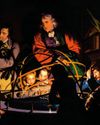
A leap in the dark
The primal play of light and shadow, whether in Leonardo's ever-so-subtle sfumato or Caravaggio's dramatic contrasts, has shaped Western art, as Michael Hall reveals

Beauty and the blimp
Inflammable airships may be gone, but a new hybrid aircraft, capable of delivering eco-friendly aviation, is set to take to the skies with a bang, finds Charles Harris
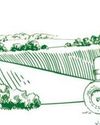
Three wishes for food and farming
Royal hedge planting, the terrible toll on Ukrainian farming and a maiden speech
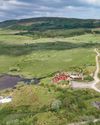
Seeing the wood for the trees
Scotland's much-evolved forestry industry has become a focus for clever investors
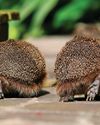
Let's fall in love
Birds do it, bees do it, even educated fleas do it. Laura Parker finds that, when it comes to creatures mating for life, persistence, patience and a little dad dancing are key to success
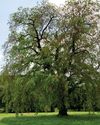
Back from the dead
THREE Wentworth elm saplings have been planted in the grounds of the Palace of Holyroodhouse, Edinburgh, and on the Highgrove estate in Gloucestershire-29 years after what was thought to be the lastknown Wentworth elm died.

A man among men
What makes a master? Beloved of the commercial art world, handled warily by art historians, the word has long been opaque. Michael Prodger investigates its many meanings-and discovers that being male confers an unfair advantage
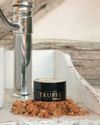
Unearth one of life's luxuries
Black diamonds are a girl's best friend this Valentine's Day, with Périgord truffle-based skincare from TRUFFE

Adventure awaits
Spend an unforgettable family holiday on the Benmore Estate and experience some of Scotland's finest wildlife and sporting activities

Let the art rule the head
Despite being a world leader in everything from jewellery to fashion and music, the UK is failing to nurture creativity at school and in regional centres. Tristram Hunt, director of the V&A Museum, calls for an urgent review